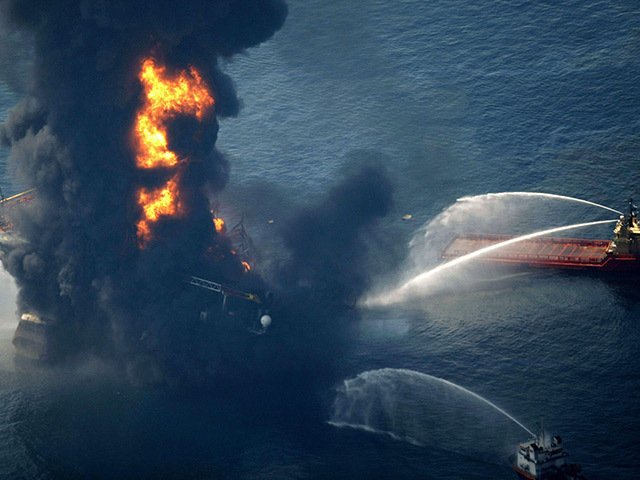
New equipment to clean up oil spills in the UK will operate five times faster than previous responses, the Maritime and Coastguard Agency (MCA) said.
The kit moves more easily through the water because of its streamlined shape.
It was developed following the Deepwater Horizon disaster in the Gulf of Mexico in 2010 and tested in Belfast Harbour on Wednesday.
Gail Robertson, the MCA’s counter-pollution resource manager, said: “The Maritime and Coastguard Agency has a thorough response procedure in place to deal with many different types of emergencies at sea that cause pollution or threatens to cause pollution.
“Demonstrations like the one in Belfast Harbour today show how our equipment is fit for purpose.”
The agency recently purchased two new pieces of Norwegian-made equipment known as NOFI Current Buster 6.
It is the latest technological advance following the Deepwater Horizon catastrophe.
The explosion and fire at the well off the Louisiana coast in 2010 claimed 11 lives and damaged fishing and tourism as well as marine and wildlife habitats, forcing BP to sign a multi-billion compensation deal in April 2012.
As well as costing the firm $42.5billion (£25.9 billion) BP was hit by the ban on new US government work in November last year because of the way it handled the disaster.
The MCA has been reviewing its own preparedness for major oil spills.
The Current Buster 6 can operate five times faster than previous methods because its hydrodynamic shape reduces the drag force of the water and allows the system to move through the seas more easily.
It also has nets to catch debris, a system of wave dampers and a splash-over cover to avoid spillages.
Stormont environment minister Mark Durkan said: “There have been some major oil spills at sea in recent years in other parts of the world, which caused devastating damage to the marine and coastal environment and to the wider economy in those regions.
“Given that the north of Ireland imports all of its oil by sea and that several major shipping routes pass close to our coast, it is not inconceivable that a serious marine oil spill could occur on or close to our coastline.
“It is therefore vital that we tackle such incidents with the most modern of technology. The fact that we now have equipment which is five times faster in cleaning up such serious pollution is most welcome.”
Recommended for you
